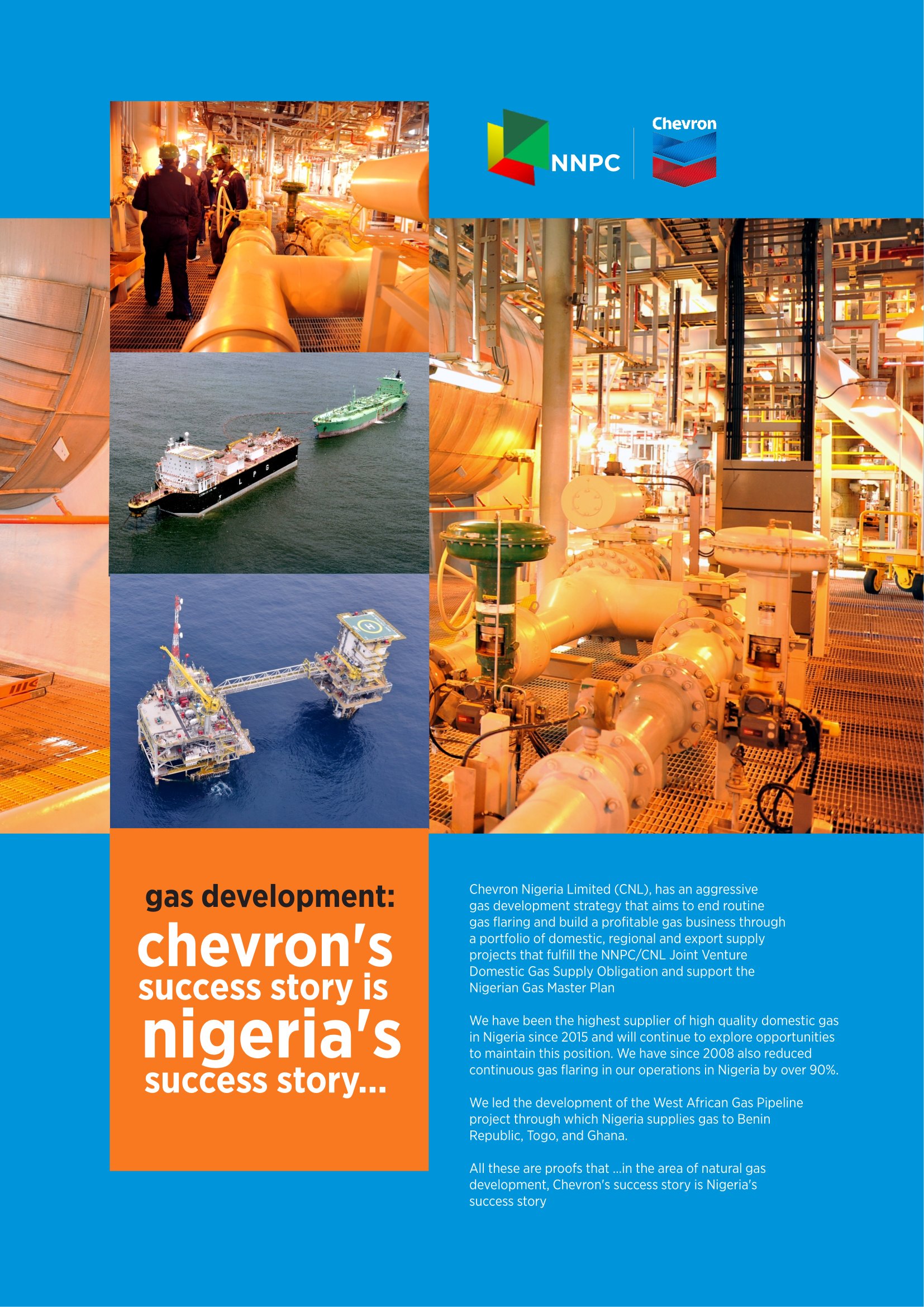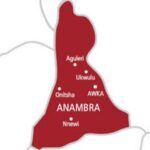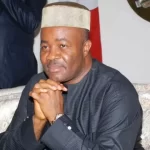By George Amah
The axiom has always been that power lies with the people, and this is more profound in a democratic society under a democratic government as Nigeria presently is. It therefore, becomes a weighty responsibility thrust upon the people when contemplating use of democratic powers. With a large population of over 200 million and economic influential among its peers, it is instructive that a decision to organise or embark on massive street protests in Nigeria is indeed, something that can have very far-reaching consequences on not just the government but on all other citizens and residents within the country and beyond.
This is why whatever that can be done to sustain peace in Nigeria cannot be overemphasized at any time. This is more so now in the face of nationwide street protests organised by some groups to show their angst as they accuse the present government of not being quick enough to tackle the economic challenges that have affected the conditions of living of many Nigerians.
Interestingly, similar to what is happening in many other nations in Africa and farther, the country is currently grappling with a rising cost of living and significant economic challenges that appear to be raising tempers from the average citizen.
The tempers have snowballed into the the nationwide protests tagged “EndBadGovernance” that started August 1st, 2024. Organized by the Take it Back Movement (TIB) and other civil society groups, the protesters are demanding from the government better living conditions.
While it is within the constitutional rights of Nigerians to express their displeasure, disappointments, and frustrations for the perceived failure of the government to meet their yearnings and aspirations, it is essential to understand that doing so through protests has often, if not always, resulted in violence in many climes.
According to some close watchers of Nigeria’s political terrain, it is imperative to remind those behind the planned protest of the ugly events and experiences of some few nations like Libya (2011)- where protests escalated into civil war and long-time instability. Somalia in 1991 also witnessed protests that triggered clan wars and widespread conflict.
The Democratic Republic of Congo in 1996, had its share of protests which also led to a civil war and persistent instability. The story of Sudan in 2020 where protests resulted in violent crackdowns and political repression remains also fresh in mind.
Would-be protesters in Nigeria must also not forget about the situation of South Sudan in 2013 where protests culminated in a civil war and calamitous humanitarian crisis, so also are the stories of Burkina Faso which in 2014 faced political unrest and terrorist infiltration that followed protests as well as Mali (2012) where protests led to a military coup and subsequent unrest.
The latest disturbing violence is the Kenyan scenario where a controversial finance bill 2024 ignited wide protests
on June 18, escalating dramatically when thousands stormed the Parliament on June 25. Several lives have been lost to the unfortunate situation in Kenya.
What is worrisome that must be taken seriously in Nigeria as the August date for the planned nationwide protests draws closer is the fact that these incidents as seen in many countries are largely driven by the youth display of discontent over the rising cost of living amid economic hardship.
As the Special Adviser on Information and Strategy to the President, Bayo Onanuga said recently, the planned protest in the country is, unfortunately, coming without the identified faces of those who are the organizers. This seems very disturbing because a protest with a faceless and leaderless posture could be dangerous anywhere.
This explains why there are concerns that something urgent needs to be done to prevent the protest from even holding. The United Nations (UN) Department of Safety and Security, for instance, has expressed concerns that the protest could potentially be infiltrated by groups with hidden agendas.
A Sudanese cleric Al-Mustapha Assudany while speaking at the Sultan Bello Mosque, in Kaduna, lends his voice in warning that it may be hijacked by interests who do not wish the country well. When a group of Islamic clerics met President Tinubu recently at the Presidential Villa, Abuja, they also appealed to young Nigerians to shelve the planned protest scheduled for August, saying it would not yield any positive result.
Other groups that have appealed that the planned protest should be suspended also include the Jama’atu Nasril Islam (JNI), the Christian Association of Nigeria (CAN), the Pan Niger Delta Elders Forum (PANDEF), the Ijaw National Congress (INC), the Movement for the Survival of Ogoni People (MOSOP), the and Enugu Innovative Youths. They all are worried that the protest could be hijacked by miscreants, leading to chaos and violence.
Of most concern too, is the alarm raised by the Inspector General of Police (IGP), Kayode Egbetokun that intelligence reports reveal that foreign mercenaries are involved in the proposed nationwide protest.
President Bola Tinubu and his team appear deeply concerned about the potential of the protest to disrupt the smooth operations of the government. The President who has pleaded for calm and patience from Nigerians, is already mobilizing efforts to prevent any existential threats from such an unrest.
“As a one-time activist himself, the President understands that the government bears the responsibility of implementing effective policies that should alleviate the economic difficulties faced by citizens,” a senior presidency official who does not want his name in print told our correspondent.
Several steps to discourage the would-be protesters are also being taken by the Federal Government including the dispatch of cabinet Ministers to their respective wards in the States to educate Nigerians on various policy actions that the government is embarking on, and that would begin to yield fruits soon, to improve lives.
Last week, President Tunubu also held separate meetings with governors elected on the platform of All Progressives Congress (APC) and traditional rulers at the Presidential Villa to discuss solutions to the impending protest.
Before meeting the APC governors, President Tinubu cautioned against the protest, pleading with organisers to shelve it, given the already tense situation in the country.
What is more interesting at this moment is the call by the President himself that the government needs the citizens enough time to respond to their requests, which include urgently addressing the hardship in the country.
The Minister of Information and National Orientation Idris Mohammed while briefing journalists at the Presidential Villa affirmed Tinubu’s concerns that indeed, “there is no need for protests”.
He explained that “The young people out there should listen to the President and allow the President more time to see to the realisation of all the goodies he has for them.”
Minister of Niger Delta Development, Abubakar Momoh, joined his voice on the eve of the protests when he offered some reasons why the youth of the Niger Delta region should not come out on the streets against the government. He noted that it appeared some people were oblivious of all that the President has been doing to reposition the country.
According to Momoh, “in the Niger Delta Region, I think the President has done a lot for which I don’t think any person who is from the Niger Delta area will deem it necessary to come out and say he is protesting against bad governance. The number of projects that have been executed in the Niger Delta region within this one year cannot be compared with what has happened previously in the last four years.”
He listed the Okitipupa electricity project, Ogbia/Nembe road with seven bridges and 25 culverts in the heart of Niger Delta region, the 600meters bridge across the river in Akwa Ibom State, a number of welfare and empowerment programmes, among orhers.
Many more prominent leaders have called for a second thought by organisers and participants in the protests, and it is imperative to give them the benefit of the doubt rather than toeing a path that may inadvertently so more harm than good as envisaged. The numerous calls for restraint which have come from even those not in government should be considered as the country currently battles insecurity from non-state actors that have put the nation’s security interest at risk and security agencies at higher alert for the sake of the unity of Nigeria. If a repeat of #EndSars mayhem must be avoided, then the protesters need to give peace a chance for the administration to continue to pull the nation out of difficult times.
(Mr. George Amah writes in from Abuja)




